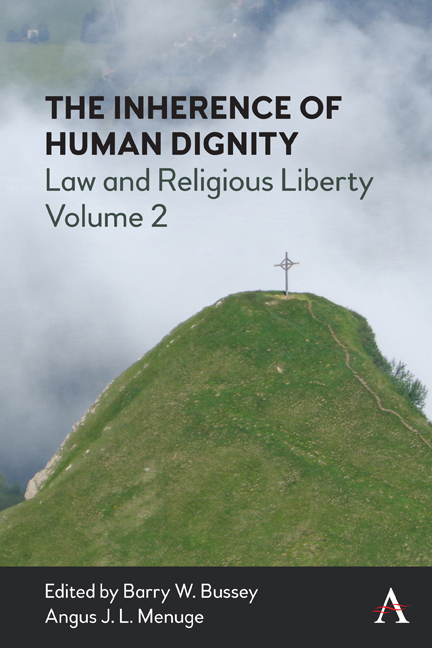Chapter Five - The New Dignity Jurisprudence: A Critique
Published online by Cambridge University Press: 24 February 2022
Summary
Introduction
The Preamble to the Universal Declaration of Human Rights (1948) demands ‘recognition of the inherent dignity and of the equal and inalienable rights of all members of the human family’. Dignity is here understood as a fixed, universal and equal characteristic, intrinsic to being human. Since dignity precedes the state, the state cannot confer or remove it by legislation. Rather, the state must simply recognize and respect it. This idea – the old dignity– has precursors in the scriptural teaching that all human beings are made in the image of God; in the philosophy of Augustine, Aquinas, Locke and Kant; and in the US Declaration of Independence.
Over the past few decades, important rulings in the United States, culminating in Obergefell v. Hodges (Supreme Court of the United States 2015), reflect the emergence of quite a different concept of dignity – the new dignity. According to the new dignity, there is a deep connection between dignity and the autonomy of the inner self that seeks to realize its potential through a preferred lifestyle. Provided that a lifestyle does no harm, the state is required to respect it. If the state fails to do so, it impairs the dignity of those who choose that lifestyle. The remedy is legislation which grants the lifestyle legal protection and support, thereby conferring dignity on its practitioners. This move may create further pressure to legally require that citizens do not disrespect the dignity that has been granted. Dignity is no longer understood as fixed, universal and equal. The new dignity can vary between parties, depending on their different choices, so that a law may help or harm one party's dignity without helping or harming the dignity of others. And the new dignity does not precede the state, but can be removed or granted by acts of legislation. The state's job is to keep a close eye on (non-harmful) lifestyles as they emerge and ensure that dignity is dispensed as equitably as possible. This task is complicated by the fact that ‘harm’ is increasingly defined subjectively to include the perception of offense, making it hard to delimit lifestyles that are harmless.
- Type
- Chapter
- Information
- The Inherence of Human DignityLaw and Religious Liberty, Volume 2, pp. 75 - 92Publisher: Anthem PressPrint publication year: 2021

